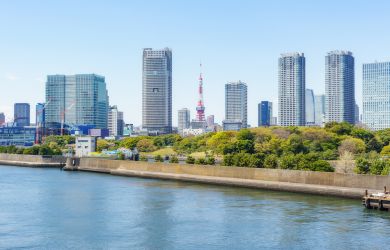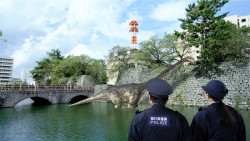
Originally published on metropolis.co.jp on October 2010
I’ve always thought “The Last Word” was an ominous title. If death were to strike me now, this really would be my last word. And there’s always the possibility that these could be the last words you read, too—perhaps you are standing too close to the edge of the platform at rush hour as the drunk behind you struggles with his balance, or possibly you’re “safely” at home in your apartment, little realizing that the Big One is about to strike after all those decades of earthquake warnings.
Wherever it happens in the world, death tends to come as a surprise. But for foreigners in Tokyo, it’s usually a bigger surprise, because most of us are in the prime of life and possibly a little more cocksure than average–something to do with the adventurous spirit that got us here in the first place.
If we do muse occasionally on our mortality, many of us see it as something that will happen in the distant future, after we’ve returned home or retired to some Thai beach. Either way, death will surely involve a plane trip first. Very few of us imagine that the Grim Reaper will bother us this side of Narita.
But the facts reveal that approximately 6,000 registered foreigners die in Japan every year. If you want a glimpse at the individual cases behind those statistics, visit the foreign section of Aoyama Cemetery, now tenderly adorned with a memorial signed by Governor Shintaro Ishihara (I guess he loves us when we’re dead). Most of the occupants of these graves hark back to the Meiji period, when the big killers were diseases like consumption, diphtheria, and possibly the occasional samurai sword.
Those people died at a time when repatriating a corpse was a tricky business, usually involving a barrel of salt and some storm-tossed months at sea. Nowadays, helpful embassies like that of the US refer the recently bereaved to the services of dry-ice flying hearse companies like the bluntly named Airhearse. The company’s webpage features a rather somber visual of a shady-looking 747 taking off, presumably with the “loved one” safely stowed in the hold along with the rest of the luggage.

Illustration by Shane Busato
Whether your next of kin opts for repatriation or a local cremation, the cost is not cheap. The US Embassy’s website prices “cremation and disposition of ashes in Japan” at $22,500. Having the body embalmed and sent back to the States is $15,000. The cheapest option is the $5,000 cremation and air shipment of ashes. Just don’t expect the fine powdered ashes that crematoria in the West produce. The Japanese like their remains a bit more lumpy, with plenty of bone fragments.
But none of this sheds any light on how foreigners actually die. To get a picture of that, the best way is to keep an eye on news reports. Foreigners in Japan find all sorts of interesting and frequently embarrassing ways to shuffle off the mortal coil, whether it’s a JET hit by a truck in the middle of nowhere or scientists venturing too close to the caldera of a volcano. Several years ago, there was a problem with Western investment bankers ODing in Roppongi on cocktails of cocaine and heroin.
Then there’s the innocent cultural misunderstanding which gets out of hand. A couple of years back, Scott Tucker, a burly American, barged into Bullets, a nightclub near his home in Minato-ku, and threw his weight around in an attempt to get the club to turn the noise down. In the resulting fracas, Tucker ended up in a chokehold that eventually crushed his Adam’s apple—by a slender disc jockey, no less.
Recently, Chinese interns working at Japanese companies have been at risk. Two years ago, 34 foreign interns died, while last year the toll was 27. When Jiang Xiao Dong keeled over from a heart attack in June 2008, it was revealed that the 31-year-old had worked more than 100 hours overtime the month before at a metal processing firm near Tokyo.
One of the big questions about death is what we will leave behind. When Eamon Gilleece, a young Irishman, drowned in the Hozu River near Kyoto in 2003, he left an unusual memorial—his own blog, detailing his first and last few months in Japan. Eerily, “Eamon’s World” (http://meturl.com/eamon), as it was called, is still there, giving a ghostly afterlife to one of the many thousands who came here never expecting to die.







